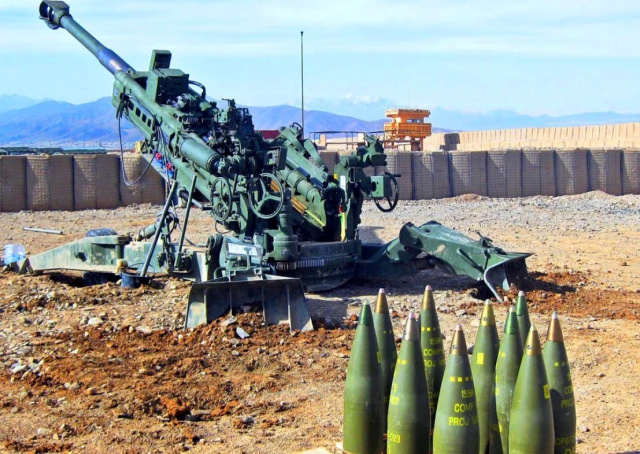
Bulgaria’s Defense Minister, Todor Tagarev, has confirmed that the nation is taking substantial steps towards the production of 155mm projectiles adhering to NATO standards.
The revelation came during a discussion organized by the Atlantic Council in Washington, where Minister Tagarev addressed inquiries regarding the alleged sale of these projectiles to Ukraine.
While the Defense Minister did not explicitly confirm a direct deal, he acknowledged the possibility, hinting that such transactions might have occurred through intermediaries.
Currently, on an official visit to the United States, Minister Tagarev emphasized Bulgaria’s commitment to achieving NATO standards, signalling a pivotal shift in the nation’s defence capabilities.
One of the critical developments highlighted by Minister Tagarev is the active involvement of Bulgarian companies in the production of 155mm projectiles.
These companies are not only gearing up to meet NATO standards but have also submitted projects to the European Commission for the modernization of their production facilities.
This move aligns with a broader pan-European decision aimed at enhancing projectile manufacturing.
The European initiative, which Bulgaria joined at the end of 2023, encourages nations to upgrade their production facilities with the promise of financial support.
This collaborative effort is crucial for strengthening the defence capabilities of European nations and fostering unity within the NATO alliance.
Minister Tagarev’s announcement represents a clear commitment to this collaborative effort, positioning Bulgaria as a contributor to NATO’s collective defence capabilities.
The nation is now on a trajectory to transition from manufacturing Soviet-standard shells to producing more advanced NATO-standard projectiles.
This strategic shift not only aligns Bulgaria with European and NATO objectives but also underscores the country’s determination to adapt and modernize its defence infrastructure.
“We are switching to the production of newer projectiles, but we continue to manufacture Soviet-standard shells,” Minister Tagarev affirmed.
This dual approach signifies a pragmatic strategy, ensuring a seamless transition while maintaining ongoing production. It also reflects Bulgaria’s recognition of the evolving security landscape and the need to stay ahead of emerging threats.
While not explicitly confirmed, the potential sale of these advanced projectiles to Ukraine adds a layer of geopolitical significance to Bulgaria’s endeavours.
If such transactions occurred through intermediaries, it could mark a diplomatic balancing act for Bulgaria, positioning the nation as a reliable partner within the NATO alliance.
As Minister Tagarev engages in discussions during his official visit to the United States, the international community will be keenly observing Bulgaria’s evolving role in regional security.
The commitment to NATO standards and the active participation in the European initiative signal a proactive stance that goes beyond national borders.
In conclusion, Bulgaria’s strategic move towards NATO-standard projectile production marks a turning point for the nation’s defence capabilities.
The commitment to modernization, collaboration with European partners, and the potential contribution to Ukraine’s defense underscore Bulgaria’s evolving role on the international stage.
The dual approach of maintaining Soviet-standard shell production while transitioning to advanced NATO standards showcases the nation’s adaptability in the face of evolving security challenges.
This article was created using automation technology and was thoroughly edited and fact-checked by one of our editorial staff members
